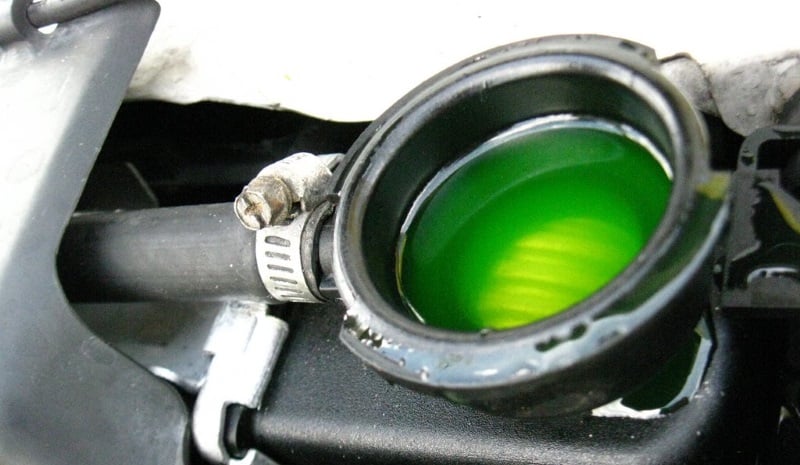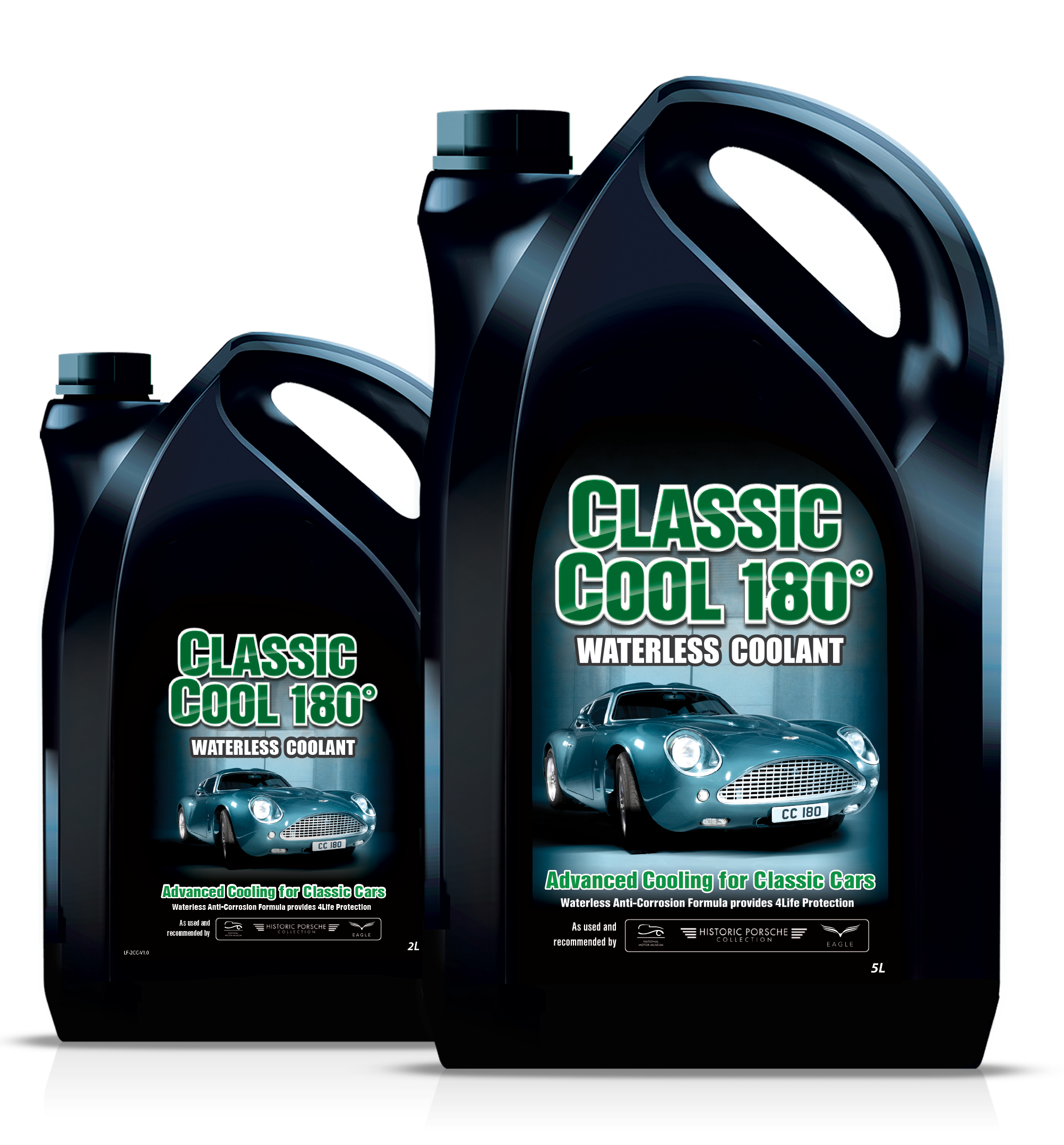
Most coolant is colored with fluorescent color that allows us to easily detect the leaks around various parts in the cooling system. The coolant also contains rust and corrosion inhibitors to protect the radiator, parts in the cooling system and engine parts for a longer service life. This helps maintain the temperature of the combustion chamber, engine parts and engine oil in the proper level for continuous operation at maximum efficiency. The coolant carries the heat away from the metal surface of the engine parts where the liquid flows by. It prevents the engine from abnormally high heat or overheating that can lead to severe damages. Radiator in a car is a device that exchanges heat between coolant and outside air in order to lower the coolant temperature to the suitable level before flowing back to cool down the engine and other parts again.

However, what if it's an emergency and we don't have coolant to fill in time? Is it okay to use plain water instead? Will that affect the radiator or parts in the cooling system or the engine of our car in any way? Let’s find out the answer!įirst of all, let's understand more about radiators and coolant. It wouldn't be a good idea to leave your car radiator run dry to the point that the engine is overheated and causes severe damages.

Don't even consider it.Can we use plain water instead of coolant when the car radiator runs dry? Will that cause damage to the engine? Salt water, as other posters have said, will enable galvanic corrosion and greatly increase the rate of corrosion over tapwater. scale in the engine lifted and deposited in the radiator, tending to block it. In at least a couple of instances, I have observed once tapwater was been used in an aluminium engine for a more than a month or two, issues tended to arise switching back to antifreeze - eg. Coolant only needs to be changed occasionally perhaps 2 years for green, 5 years for long-life antifreeze so getting this right is a very minimal cost. Choose a quality one, especially if you have aluminium heads - corrosion can eventually occur with inferior ones. Use antifreeze if you don't want to pay for a new engine (or at least, the head gaskets). Aluminium heads at temperature are prone to corrosion and using tapwater, other than quite temporarily, will allow corrosion to start. Most modern engines have aluminium heads (or other components) for reduced weight, and absolutely require antifreeze in the coolant for it's anti-corrosion properties. The radiator will sacrifice itself to save the engine, so good news there anyway.

You can protect the engine with zinc plates, and you already are - the radiator has a lot of zinc. The colder the weather, the poorer this "antifreeze" performs. This is a perfect recipe for clogging the radiator.īut more worrisome, with the salt not in the water, it is more vulnerable to freezing. Where will it do this? Where it is the coldest, and since your use-case calls for temperatures below 0C/32F, that will be in the radiator, inside the fine passages. If you saturate warm water and then let it get cold, the material will precipitate - in salt's case, crystallize on a solid surface. You probably also know there's a limit to how much it can hold - called saturation. Of course you know you can dissolve things like salt into water. The salt will precipitate and block the radiator fins


 0 kommentar(er)
0 kommentar(er)
